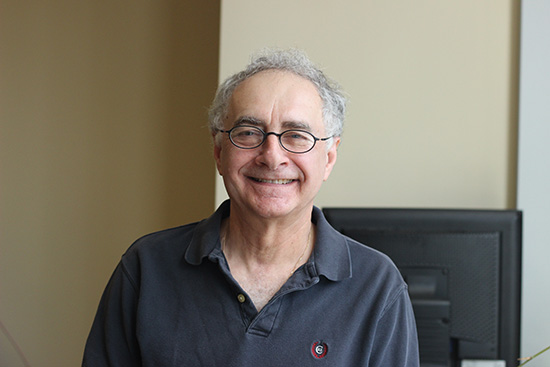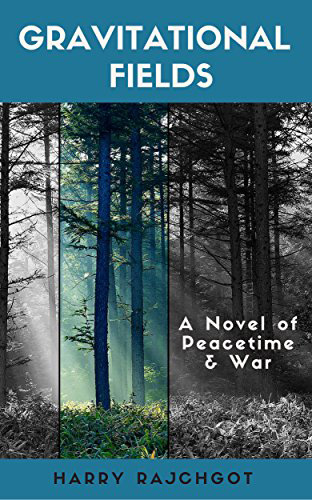Special dental care for kids with special needs
Dr. Harry Rajchgot is a dentist working in the busiest pediatric dental facility in Canada, the clinic of the Department of Dentistry at the Montreal Children’s Hospital of the McGill University Health Centre (MCH-MUHC). A member of the staff since 1980, he has been providing oral health care services to children aged zero through 18 years, many of whom have behavioural or social problems, or medical conditions of various severities.
“We’re very busy indeed! In the past year, the clinic had over 22,000 patient visits,” he says. “We treat children with many different conditions, including autism, heart disease, cancers, birth defects involving the head and neck, such as clefts of the lip and palate, and types 1 and 2 diabetes. We interact with many of the MCH’s medical departments as well as with other childhood institutions devoted to children's health and well-being.”

A large number of the clinic’s new patients are children of recently arrived immigrants or refugees, who often require translation services provided by the MUHC. Other patients are referred from all over Quebec and including First Nations communities.
“Many of our patients require long-term follow-up care, so our staff must not only have expertise, but also have strong communication skills and sensitivity to cultural differences,” notes Dr. Rajchgot.
The clinic opens five days a week for scheduled appointments and 24-hours a day, seven days a week, for emergencies. A staff of over 30 part-time generalists and specialist dental clinicians – pedodontists, pediatric dental specialists, generalist dentists, oral surgeons, endodontists, periodontists and orthodontists – provides highly specialized care to patients in two locations: the Gilman Pavilion on Atwater Street and the Glen site.
“I enjoy working with children, because of their ability to learn and grow and acquire the knowledge and good habits that will help them keep their teeth in good shape for their whole lives. It may sound like a cliché, but children really are the future, and I like to think that in a small way, I'm contributing to it.”
Caries still prevalent
According to Dr. Rajchgot, tooth decay is the world's most common infectious process. “Although I've seen a reduction in the degree of severity of tooth decay over the years, it’s still a major problem, especially for children,” he notes. “And Quebec and Montreal are not exceptions to this fact.”
Dr. Rajchgot and his colleagues recommend a first visit to the dentist at 12 to 18 months of age and stress the importance of taking care of children’s baby teeth to avoid decay, infection and tooth loss, resulting in orthodontic problems in the future.
“We try to combat misinformation through education,” he says. “We recommend that parents begin brushing their children's teeth from the time they first appear, about the age of 6 months, and begin flossing as early as possible, usually by about the age of 3. We also highly recommend a daily fluoride supplement, since it’s not added to the water supply in the vast majority of municipalities in Quebec. Because sugar in any form can cause the beginning of the decay process, we also recommend avoiding the milk bottle at night.”
Finding time to explore another passion – writing
 As much as he enjoys taking care of his young patients, Dr. Rajchgot has another great passion: the written word. His online literary magazine, JONAHmagazine, and his humorous and informative blog, 1001 Uses For Dental Floss, have attracted many viewers. He recently wrote a book about the children of Holocaust survivors, who like him, didn’t know much about their parents’ past. Titled Gravitational Fields, it tells the story of twins Simon and Adam, who were born in Israel and raised in Montreal. Simon believes his father, Duvid, was a coward who hid in a forest in Poland during World War II, but some old letters found after his father’s death seem to suggest other possibilities. Intrigued, Simon decides to go on a quest to find their meaning, and in the process, discovers much more.
As much as he enjoys taking care of his young patients, Dr. Rajchgot has another great passion: the written word. His online literary magazine, JONAHmagazine, and his humorous and informative blog, 1001 Uses For Dental Floss, have attracted many viewers. He recently wrote a book about the children of Holocaust survivors, who like him, didn’t know much about their parents’ past. Titled Gravitational Fields, it tells the story of twins Simon and Adam, who were born in Israel and raised in Montreal. Simon believes his father, Duvid, was a coward who hid in a forest in Poland during World War II, but some old letters found after his father’s death seem to suggest other possibilities. Intrigued, Simon decides to go on a quest to find their meaning, and in the process, discovers much more.
"My parents were Holocaust survivors, and like Simon, I avoided asking them many questions, because even as a child, I knew that I shouldn't force them to look back at those terrible times,” says Dr. Rajchgot. “The problem is that by doing that, the truth remained hidden. Almost too late, I realized that the stories would die with the survivors if they weren't recorded. If we forget, it may happen again. History repeats itself. Sadly, we still see similar tragedies happening in many parts of the world. So I felt that I needed to write this story.”
